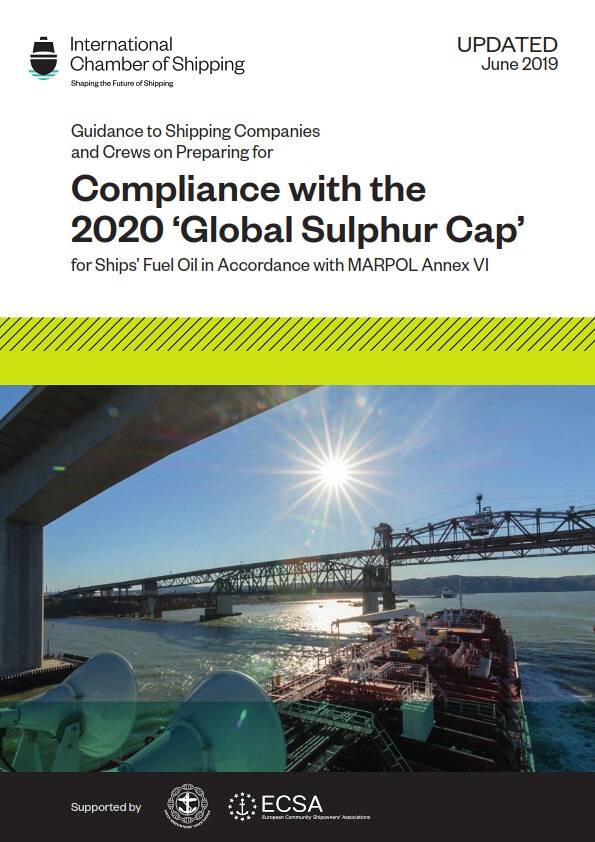
With six months to go until the implementation of the 'Global Sulphur Cap' the International Chamber of Shipping (ICS) has issued updated guidance to help shipowners comply with new UN International Maritime Organization (IMO) regulations.
Taking full effect on January 1, 2020 the legal framework will require merchant ships worldwide to use fuel with a sulphur content of less than 0.50 percent or use alternative mitigation technologies.
The ICS guidance incorporates the latest IMO decisions addressing issues such as fuel oil non-availability reporting, fuel safety and fuel quality.
The updated guidelines will help ships avoid port state control difficulties that might arise, through no fault of the operator, and enable shipowners and ships’ crews to overcome the practical challenges presented by this multi-fuel scenario.
The free resource, Compliance with the 2020 'Global Sulphur Cap', contains details of the new requirements to allow on board sampling to verify fuel oil compliance, includes a new section on managing different fuels, an updated FAQ and a new appendix with the IMO standard template Fuel Oil Non-Availability Report (FONAR).
The updated guidelines, which have been produced with the support of ICS’s regional partners - the Asian Shipowners' Association (ASA) and the European Community Shipowners' Associations (ECSA) - are available to download for free.



